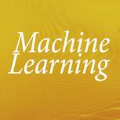We apply causal machine learning algorithms to assess the causal effect of a marketing intervention, namely a coupon campaign, on the sales of a retailer. Besides assessing the average impacts of different types of coupons, we also investigate the heterogeneity of causal effects across different subgroups of customers, e.g., between clients with relatively high vs. low prior purchases. Finally, we use optimal policy learning to determine (in a data-driven way) which customer groups should be targeted by the coupon campaign in order to maximize the marketing intervention's effectiveness in terms of sales. We find that only two out of the five coupon categories examined, namely coupons applicable to the product categories of drugstore items and other food, have a statistically significant positive effect on retailer sales. The assessment of group average treatment effects reveals substantial differences in the impact of coupon provision across customer groups, particularly across customer groups as defined by prior purchases at the store, with drugstore coupons being particularly effective among customers with high prior purchases and other food coupons among customers with low prior purchases. Our study provides a use case for the application of causal machine learning in business analytics to evaluate the causal impact of specific firm policies (like marketing campaigns) for decision support.
翻译:我们采用因果机学算法来评估市场干预,即优惠券运动对零售商销售的因果关系。我们除了评估不同种类的优惠券的平均影响外,还调查不同客户分组之间因果关系的异质性,例如相对高的客户与以往低的购买者之间的异质性;最后,我们利用最佳政策学习法来确定(以数据驱动的方式)哪些客户群体应当成为优惠券运动的目标,以便最大限度地提高市场干预在销售方面的效力。我们发现,所审查的五种优惠券类别中,只有两种类别,即适用于药店产品类别和其他食品的优惠券,对零售商销售具有统计上显著的积极影响。对集团平均治疗效应的评估表明,在消费者群体之间提供优惠券的影响存在很大差异,特别是以前在商店购买时界定的客户群体,药品券在以往购买率高的客户之间特别有效,而以前购买低的客户之间其他粮食优惠券则特别有效。我们的研究提供了在企业决策中应用因果机学习的事例,以评价具体因果关系政策。



